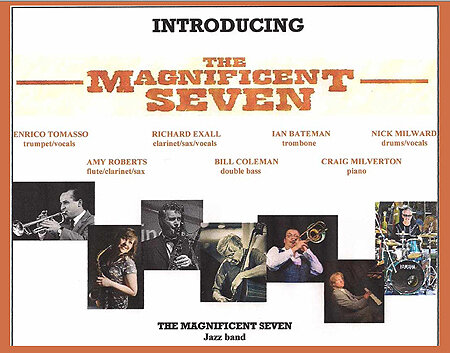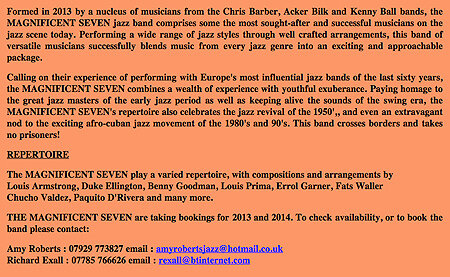 Courtesy of Fred Burnett and Jazz North West,
Courtesy of Fred Burnett and Jazz North West,
Jazz&Jazz is pleased to present
The Magnificent Seven Jazz Band
Newly formed this year by a nucleus of musicians from the Chris Barber, Kenny Ball and Acker Bilk Bands, The Magnificent Seven Jazz Band is currently taking bookings for 2013/14 via Amy Roberts or Richard Exall. You can see more details at http://jazznorthwest.co.uk/magnif7.htm.

